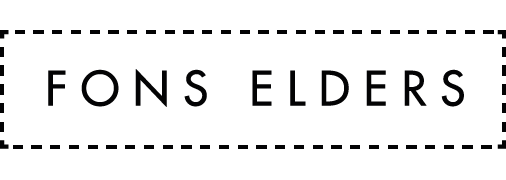Algeria and the Mediterranean cultural space
On January 6, 1963, Alma and I trusted our firstborn son David to the care of my sister Marja and left the frozen canals of Amsterdam to hitchhike southward.
We didn’t have money but we had time. On our journey to Algeria, we decided to cross Morocco’s border at Oudja. Asking the truck driver what time we would arrive in Oudja, he answered: With Allah’s will, at three P.M. Riding in the desert along the edge of an abyss, the truck lost its right back-wheel. The driver managed to keep his car on the road, got out and said quietly: Allah hasn’t wanted it. I was amazed. I couldn’t imagine any European truck driver reacting in such a stoic mood confronted with such an incident.
It wouldn’t be the last time that we wondered about the acceptance of ‘fate’ in the name of Allah. This belief, not Islamic in origin, is absurd in the eyes of many Europeans. Muslim men, however, seem to draw strength out of it. Instead of getting angry, they stay patient and calm.
Holland-Algeria
Arriving in Algeria, we changed our signboard to “Holland-Algeria”, as we did each time after arriving in another country. This time, the effect was astonishing. Algerians went out their way to help us and to offer hospitality, while the few French hotel-owners kept their doors closed. Our sign read as ‘Yes’ to an independent Algeria. Algeria became independent in 1962. Its war for independence began in 1954, the year that Pierre Mendès France ordered the French army to leave Vietnam. The pied-noirs, slang for the French Algerians of which many had lived for generations in Algeria, resisted the independence movement by the Berber and Arab speaking Algerians in the most fierce way. In Vietnam, Americans took the place of the French army, obsessed as they were by the domino-theory: for one country communist, the other one too. Twenty-one years later, in 1975, they had to flee Saigon, leaving the south to the north; the same Saigon the French had captured in 1858.
A global de-colonization process
The struggle for independence in various colonies was part of a global de-colonization process, notably in Asia and Africa. When European countries started their second war in thirty years, they destroyed not only each other but also the last remnants of the belief that they were invincible as colonial powers. The first blow to this belief had been the defeat of the Russians by the Japanese in the Russo-Japanese war of 1904-1905. The subsequent W.W. (1914-1918), the Russian revolutions (1917), the simultaneous downfall of the Emperors in Russia, Germany, and Austria-Hungary (1917-1918), and the Ottoman Empire (1922-1923), were followed by W.W. II (1939-1945). The ongoing revolutions and concomitant violence may be called creative destruction, to use a phrase of the German philosopher Hegel or the American economist Schumpeter because of the rotten feudal structures in notably Central and Eastern Europe. The violence of European states disguised itself as the usual power politics between each other and vis-à-vis their colonies. Violence was also, perhaps more than anything else, the mind-child of a blind superiority complex of the European elites. Their superiority based itself on the twofold assumption of Christianity as the only true religion, and Europe’s scientific and moral genius.
The two factors combined explain that the political and social opposition between left and right was a functional opposition within the same nationalistic paradigm. Its emotions effaced the last traces of opposition in 1914. The war-drums and the blessing of the arms by the clergy of the respective nations followed. The bloody act of Europe’s self-destruction had begun and would continue for decades.
De Gaulle
General De Gaulle finally broke the resistance in France and of his generals by putting his weight and fate in the scale of a plebiscite: who voted for him, voted for the independence of Algeria, and vice versa. I didn’t understand the logic of this strategy, and wrote an article against his proposal as being un-logical. But De Gaulle did the right thing. Only he had the insight and the authority to end this dirty war that split France into two camps, as it partly continues to do. The political party Front National still draws votes from former French Algerians and their progeny.
Heil Hitler
Travelling through the Djurdjura mountains of the Kabyle region, the heart of the Algerian Independence war, we met a former colonel selling ice-cream to the children. Standing on one leg, missing the other, he smiled happily and talked about the strategy against the French army. The man was impressive in his mix of strength, courage and friendliness. Or the barkeeper somewhere along the road; the front of his bar full of bullet-holes. The man himself extremely thin. After standing a day in the baking desert sun without a drop of water, someone had given him petrol in the evening. He drank: Thirst is the worst pain to suffer.
Algerians received us everywhere with great hospitality, also in Algiers. Walking on the Boulevard de la Victoire, the victory boulevard, we were greeted by some men in a café with ‘Heil Hitler’. Being shocked, I asked the men why they greeted us with ‘Hitler’. Their answer: “Aren’t you Germans?” “No”, I said, “but I would ask you the same question if we were Germans”. Then followed some remarks about Hitler who was against the Jews who conquered the land of their Palestinian brothers. I told them about the Holocaust that preceded the establishment of Israel. They asked: “didn’t Hitler start his political campaign in Bayern?” “Yes”, I said. “If so”, they replied, “why didn’t the Allies give Bayern to the Jews instead of Palestine?”
The men didn’t know that they were talking to a woman who had lost her father in Auschwitz. They judged the situation from their point of view. But the opposite is true also. Most Israeli, Europeans and Americans are utterly one-sided in their approach of Palestine, and don’t have much knowledge, partly intentionally, partly unconsciously, about the state of affairs regarding Palestine and Israel or, when they do, hardly show it publicly.
The obvious absence of the Palestinian point of view in Western public opinion contributes to the suffering and anger of Palestinians and Arabs alike. The remark about Hitler fits a simple-minded scheme: “who is not for us, is against us”. The motto sounds familiar, too familiar. George W. Bush: You are either with us or against us, CNN November 6, 2001.
Aristotle
2500 years ago, Aristotle developed the logical principles of identity, non-contradiction and excluded third. The principles are of a purely logical and mathematical nature. Projecting these principles on questions as “what is the identity of Europe”, or ethical questions of right and wrong, one gets lost in a jungle of words by applying formal logical terms without any content whatsoever on domains such as ontology, politics and psychology. Aristotle’s principles are useful in the mathematical language of ‘0’ and ‘1’, the software of computers. The projection of his principles on ontological and psychological issues is the root cause of a dualistic mindset. The way out is to comprehend that there always exists a third possibility. The statement “who is not for us”, is not identical with “against us”, and “who is not against us”, is not identical with “for us”.
Learning to think in a third possibility equals the beginning of an infinite number of possibilities. It opens the road toward a liberation of the mind.
Sicily, an amalgam of cultures
The ferry brought us from Tunisia to Palermo. Sicily was a revelation after North-Africa. We were struck by its natural richness, the beauty of its landscapes and the vivid lifestyle of the Sicilians. The island is an amalgam of cultures feeding the collective consciousness since millennia.
This amalgam inspired D.H. Lawrence to write in Sardinia and the Sea that Sicilians don’t know anymore whether they are lying or not. There are too many layers of consciousness at work. The simultaneity of consciousness inspired me to hold a lecture in Palermo about The Creative Core of the Principle of Simultaneity – How the human mind can ride the wild horse we call TIME.
The threads of the social fabric
There was a striking difference in the level of welfare between Tunisia and Sicily, in favor of the people of Sicily and yet, Sicilians those days seemed to be less happy than the people in Tunisia. The discontent had probably to do with a growing inequality on the island itself, between South and North Italy, and the lawless power of the Sicilian mafia. If the threads of the social fabric are weakening due to inequality and injustice, people become less happy than being less rich but more equal and capable to go after their rights.
Sicily taught this lesson. It has to be a guideline for Europe’s overall policy. Not the economic growth is the single most important criterion but how to deal with the threads of the social fabric. The growing inequality in the US must be the sign at Europe’s wall not to follow the Anglo-Saxon corporate philosophy blindly.
Europe’s South and North
Hitchhiking all the way back through Italy, Switzerland and Germany into Holland, the differences in landscape, light and human culture became evident. Especially the body language of people around the Mediterranean Sea and the body language in the North after passing the Gotthard, show a greater difference between North and South within the European Union than between the people living around the Mediterranean Sea. This isn’t amazing. At the time of the Roman Empire and before, there existed one cultural Mediterranean space. It is within reach to realize this again if citizens and politicians perceive Europe’s differences in a complementary sense, not as irreconcilable oppositions. This difference in perception determines the future of Europe.

